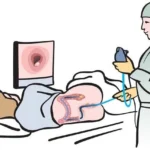
Preparing for Your Colonoscopy
October 2, 2025
Alternative Therapies in Pain Management
October 2, 2025Fertility clinics provide a range of services designed to address various aspects of reproductive health. These facilities offer diagnostic procedures, medical treatments, and third-party reproductive services, providing comprehensive healthcare options. Individuals and couples may seek these services for many reasons, so clinics have developed specialized approaches to meet different needs. Here is a range of fertility services for anyone exploring support:
Infertility Treatments
Clinics may offer several advanced treatments for infertility. In vitro fertilization (IVF) is a multi-step process where an egg is fertilized by sperm in a laboratory, and then the resulting embryo is transferred to the uterus. Intrauterine insemination (IUI) is a different procedure; it involves placing specially prepared sperm directly inside the uterus around the time of ovulation. These treatments are typically performed and are among the primary services offered at a fertility center.
Egg Donation
Egg donation is a process that allows an individual or couple to receive eggs from a donor. The donated eggs are fertilized with sperm from the intended father or a sperm donor, and then the resulting embryo is transferred to the recipient’s uterus. This process may be recommended for various reasons, including poor egg quality or quantity. Recipients typically go through a preparatory medication cycle, while the donor undergoes ovarian stimulation and egg retrieval.
Ovulation Induction
Ovulation induction uses medication to stimulate the ovaries to release one or more eggs. A physician may monitor the cycle closely through blood tests and ultrasounds, using careful observation of its progression. This treatment is typically a first-line approach for individuals who do not ovulate regularly.
The specific medications used will vary based on the individual’s situation. Some people might use oral medications, while others may receive injectable hormones. A healthcare provider determines the appropriate protocol. The goal is to produce a predictable cycle, which increases the opportunity for conception either through intercourse or with other treatments like IUI.
This approach requires careful management to track the development of ovarian follicles, and it also necessitates accurate timing of any subsequent procedures. Patients can receive detailed instructions and work closely with the clinical team throughout the cycle, so they are adequately supported at every stage. Following the prescribed medication schedule and attending all monitoring appointments are parts of the process.
Laparoscopy Procedures
Laparoscopy is a minimally invasive surgical procedure that physicians use for both diagnosis and fertility services. A surgeon typically makes a small incision near the navel, and they insert a thin, lighted instrument called a laparoscope to view the pelvic organs. This technique allows for a direct visual assessment of the uterus, fallopian tubes, and ovaries.
During a diagnostic laparoscopy, a surgeon can inspect the pelvic region for abnormalities like endometriosis, pelvic adhesions, uterine fibroids, or ovarian cysts. If a problem is identified, an operative laparoscopy may be performed during the same session to treat the condition. A surgeon could remove scar tissue or treat endometrial implants, which may improve the chances of a future pregnancy. Recovery from this outpatient procedure is typically quicker than with traditional open surgery.
Find Fertility Services Near You
Navigating the world of fertility services begins with gathering information and understanding the options available to you. Each facility has its own team, protocols, and approach to patient care. Taking the time to learn about these services is a productive way to prepare for your first consultation. Contact a local fertility clinic to schedule an appointment and discuss your specific situation with a specialist.





